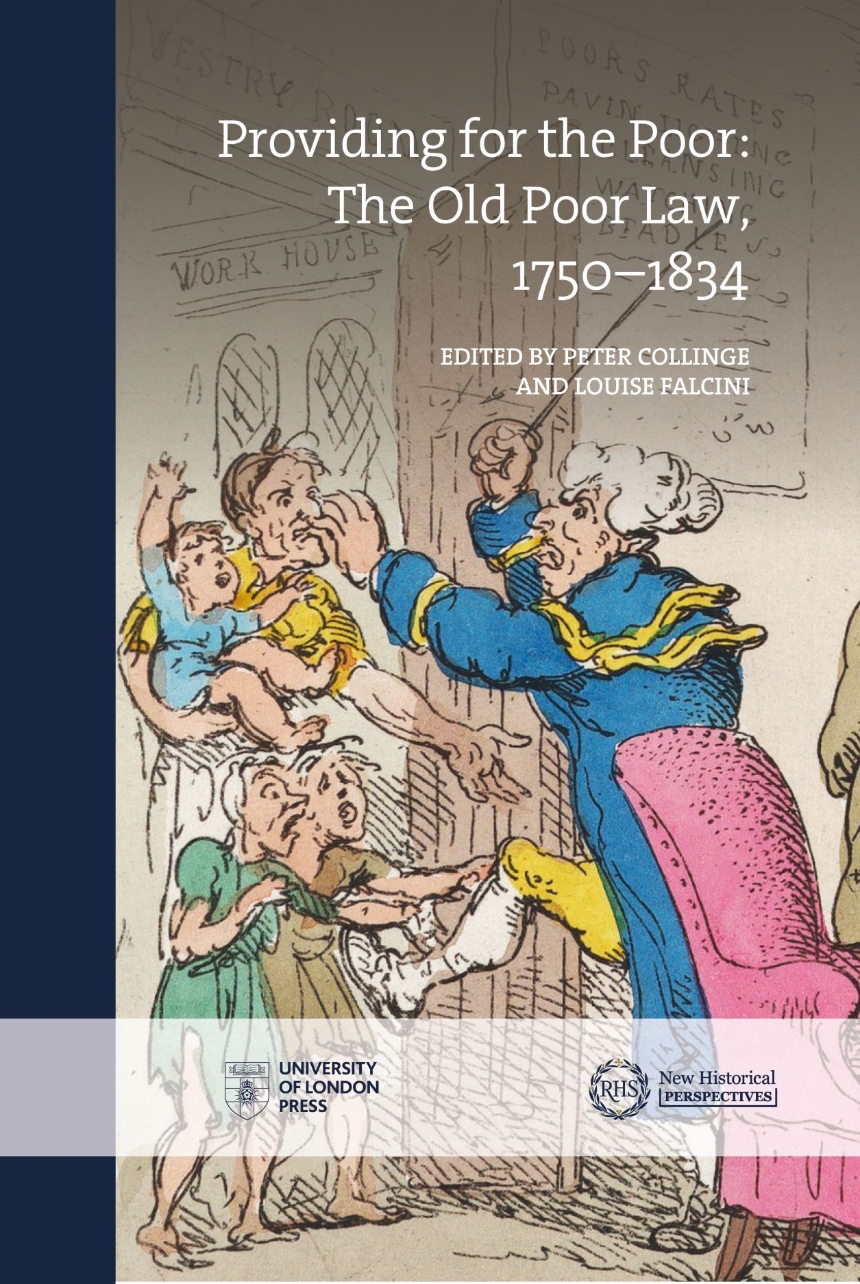9781914477119
9781914477102
A history of the Old Poor Law, which was the primary support for the poor in England and Wales from 1601 to 1834.
The Old Poor Law, which was established in 1601 in England and Wales and was in force until 1834, was administered by the local parish and dispensed goods and services to paupers, providing a uniquely comprehensive, premodern system of support for the poor. Providing for the Poor brings together academics and practitioners from across disciplines to reexamine the micropolitics of poverty in the long eighteenth century through the eyes of the poor, their providers, and enablers. Covering such topics as the providence of the parochial sixpence, which was given in order to get a beggar to move along to another parish, to coercive marriages, plebeian clothing, and the much broader implications of vagrancy toward the end of the long eighteenth century, this volume aims to bridge the gaps in our understanding of the experiences of people across the social spectrum whose lives were touched by the Old Poor Law. It brings together some of the wider arguments concerning the nature of welfare during economically difficult times and documents the rising bureaucracy inherent in the system to produce a radical new history of the Old Poor Law in astonishing detail.
The Old Poor Law, which was established in 1601 in England and Wales and was in force until 1834, was administered by the local parish and dispensed goods and services to paupers, providing a uniquely comprehensive, premodern system of support for the poor. Providing for the Poor brings together academics and practitioners from across disciplines to reexamine the micropolitics of poverty in the long eighteenth century through the eyes of the poor, their providers, and enablers. Covering such topics as the providence of the parochial sixpence, which was given in order to get a beggar to move along to another parish, to coercive marriages, plebeian clothing, and the much broader implications of vagrancy toward the end of the long eighteenth century, this volume aims to bridge the gaps in our understanding of the experiences of people across the social spectrum whose lives were touched by the Old Poor Law. It brings together some of the wider arguments concerning the nature of welfare during economically difficult times and documents the rising bureaucracy inherent in the system to produce a radical new history of the Old Poor Law in astonishing detail.
224 pages | 9 halftones, 1 line drawing, 5 maps | 6.14 x 9.21 | © 2022
Economics and Business: Economics--Money and Banking
History: British and Irish History, Urban History
Table of Contents
Introduction
Peter Collinge and Louise Falcini
Part I: Paupers and Vagrants
Chapter 1. Accounting for Illegitimacy: parish politics and the poor
Louise Falcini
Interlude 1. Thomas Woolgar the Mystery Man
Jean Irvin
Chapter 2. Clothing the Poor
Elizabeth Spencer
Interlude 2. Elizabeth Overing in Bedlam
Elizabeth Hughes
Chapter 3. Vagrancy, Poor Relief and the Parish
Tim Hitchcock
Interlude 3. Elizabeth Malbon (c.1743–1801)
Dianne Shenton
Part II: Providers and Enablers, and their Critics
Chapter 4. Women, Business and the Old Poor Law
Peter Collinge
Interlude 4. The Wilkinsons and the Griffin Inn, Penrith
Margaret Dean
Chapter 5. The Overseers’ Assistant: taking a parish salary, 1800–1834
Alannah Tomkins
Interlude 5. The Parochial Career of James Finlinson (1783–1847)
William Bundred
Chapter 6. Who cares? Mismanagement, neglect and suffering in the final decades of the old poor laws
Samantha Shave
Interlude 6. Abel Rooker (1787–1867), Surgeon
Janet Kisz
Part III: Public Histories
Chapter 7. Public Histories and Collaborative Working
Louise Falcini and Peter Collinge
Conclusion
Peter Collinge and Louise Falcini
Part I: Paupers and Vagrants
Chapter 1. Accounting for Illegitimacy: parish politics and the poor
Louise Falcini
Interlude 1. Thomas Woolgar the Mystery Man
Jean Irvin
Chapter 2. Clothing the Poor
Elizabeth Spencer
Interlude 2. Elizabeth Overing in Bedlam
Elizabeth Hughes
Chapter 3. Vagrancy, Poor Relief and the Parish
Tim Hitchcock
Interlude 3. Elizabeth Malbon (c.1743–1801)
Dianne Shenton
Part II: Providers and Enablers, and their Critics
Chapter 4. Women, Business and the Old Poor Law
Peter Collinge
Interlude 4. The Wilkinsons and the Griffin Inn, Penrith
Margaret Dean
Chapter 5. The Overseers’ Assistant: taking a parish salary, 1800–1834
Alannah Tomkins
Interlude 5. The Parochial Career of James Finlinson (1783–1847)
William Bundred
Chapter 6. Who cares? Mismanagement, neglect and suffering in the final decades of the old poor laws
Samantha Shave
Interlude 6. Abel Rooker (1787–1867), Surgeon
Janet Kisz
Part III: Public Histories
Chapter 7. Public Histories and Collaborative Working
Louise Falcini and Peter Collinge
Conclusion

